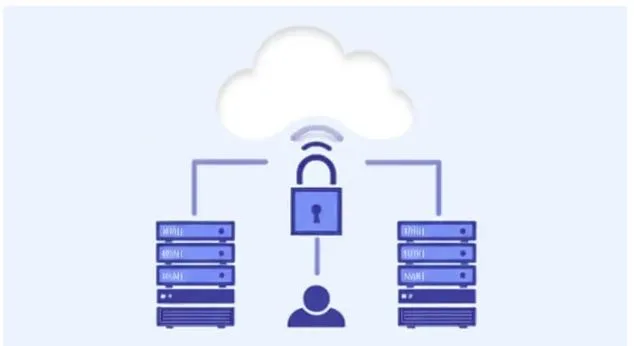Unlocking Online Privacy: Understanding the Role of a SOCKS5 Proxy Server
In an age where online privacy and unrestricted access to content are increasingly important, many internet users are turning to tools that help them stay anonymous and secure. One such tool is the SOCKS5 proxy server—a flexible and efficient way to route internet traffic through an intermediary server. Whether you’re looking to enhance privacy, access region-locked content, or improve connection speeds, many users choose to buy socks5 proxies for their reliability and performance. But what exactly is a SOCKS5 proxy, and why might you want to use one?
This article explores the concept, benefits, and common applications of SOCKS5 proxy servers in a straightforward and practical way.
What Is a Proxy Server?
A proxy server is an intermediary that stands between your device and the internet. When you send a request to access a website, instead of going directly to the site, your request first goes through the proxy server. The proxy forwards your request and then sends the website’s response back to you.
By doing this, proxy servers can mask your IP address, improve security, and even help you bypass internet restrictions.
Introducing SOCKS and SOCKS5
SOCKS stands for Socket Secure, a protocol designed to route network traffic through a proxy server. It operates at a lower level than typical HTTP proxies, allowing it to handle a broader range of traffic types—including emails, FTP (file transfers), peer-to-peer sharing, and more—making services like http://stableproxy.com/en a popular choice for users seeking reliable SOCKS5 solutions.
The most commonly used version today is SOCKS5, which offers several improvements over earlier versions. It’s known for its speed, flexibility, and support for different types of traffic.
Key Features of SOCKS5
Authentication Support
One of the main upgrades in SOCKS5 is its support for authentication. This means only authorized users can access the proxy, which adds a valuable layer of protection—especially in professional or organizational settings.
Compatibility with All Traffic Types
Unlike HTTP proxies that are limited to handling web traffic, SOCKS5 can manage virtually all types of traffic. This makes it suitable for a wide range of applications, including video streaming, online gaming, and file-sharing platforms.
No Data Modification
SOCKS5 does not alter the data being transferred. It simply relays it as-is, which leads to faster and more reliable connections. This makes it especially appealing to users who require speed and anonymity.
How Does a SOCKS5 Proxy Server Work?
When you configure a device or application to use a SOCKS5 proxy, your internet traffic is rerouted through the proxy server. Here’s how the process typically works:
- You send a request (such as trying to access a website).
- That request goes to the SOCKS5 proxy server first.
- The proxy forwards your request to the destination server.
- The destination server responds to the proxy.
- The proxy then sends the response back to your device.
Throughout this process, the destination server only sees the IP address of the proxy—not yours. This helps preserve your anonymity and can also be used to bypass location-based restrictions.
Common Uses for SOCKS5 Proxies
Bypassing Internet Restrictions
SOCKS5 is often used to access websites and content that may be blocked in certain countries or regions. Since it can make your traffic appear as though it originates from a different location, it helps users get around censorship or geo-blocks.
Enhancing Online Privacy
By masking your real IP address, SOCKS5 proxies make it more difficult for websites, advertisers, or malicious actors to track your activity online.
Supporting Peer-to-Peer Applications
Many users rely on SOCKS5 proxies for torrenting and other peer-to-peer (P2P) activities. Because it handles a wide range of protocols and provides fast, uninterrupted traffic flow, it’s ideal for such use cases.
Enabling Secure Remote Access
In professional environments, SOCKS5 proxies are used to provide employees with remote access to internal systems without exposing those systems directly to the internet.
SOCKS5 vs. Other Proxy Types
While there are many kinds of proxy servers available, SOCKS5 stands out because it combines flexibility with strong performance. Unlike HTTP proxies, it doesn’t limit you to web browsing. And unlike VPNs, it doesn’t encrypt your traffic—which may sound like a disadvantage, but actually allows for faster connections in certain scenarios.
However, it’s important to note that because SOCKS5 does not offer encryption, it’s best used in combination with other security tools if you’re dealing with sensitive data.
Final Thoughts
A SOCKS5 proxy server is a powerful and versatile tool for anyone looking to enhance their online privacy, bypass restrictions, or improve performance for certain applications. It supports a wide range of traffic types, offers optional authentication, and provides a fast, lightweight solution for many online challenges.
Whether you’re a casual internet user looking to access blocked content, a remote worker needing secure system access, or a tech-savvy user engaging in P2P sharing, SOCKS5 proxies can offer a practical and effective solution—just make sure to use them responsibly and with a clear understanding of their limitations.





